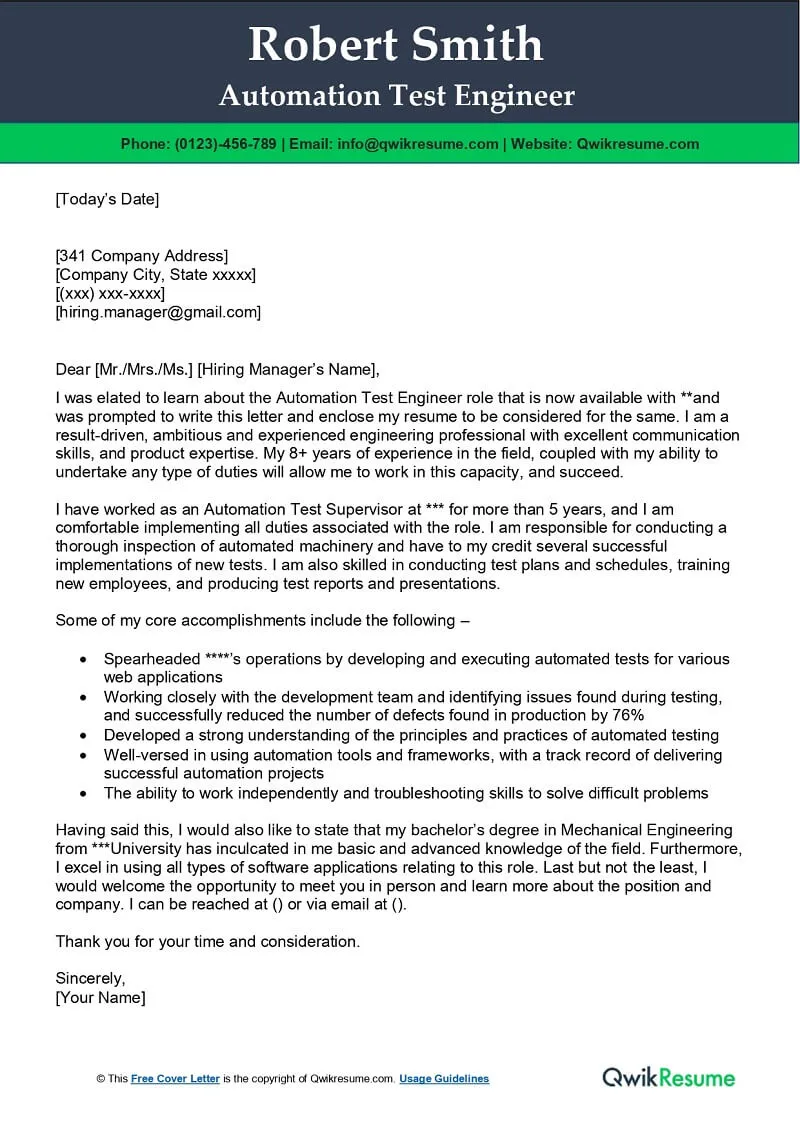What is a Field Engineer?
A Field Engineer is a crucial role in many industries, responsible for on-site technical support, installation, maintenance, and troubleshooting of equipment and systems. They often work directly with clients, ensuring that technology functions correctly and meets their needs. Field engineers require a blend of technical expertise, problem-solving skills, and excellent communication abilities. Their responsibilities can vary significantly depending on the industry, from telecommunications and IT to manufacturing and construction. They serve as the face of the company, providing both technical support and customer service. Understanding the demands of this role is the first step in crafting a compelling cover letter.
Key Components of a Field Engineer Cover Letter
A strong cover letter for a Field Engineer position should include specific elements to effectively communicate your qualifications and interest in the role. It should demonstrate your understanding of the job requirements and your ability to contribute to the company. By highlighting relevant skills and experiences, you can show potential employers why you are the best fit for the position. Ensuring that your cover letter is well-structured and tailored to the specific job requirements is crucial for making a positive impression and increasing your chances of landing an interview. The key components are as follows.
Contact Information
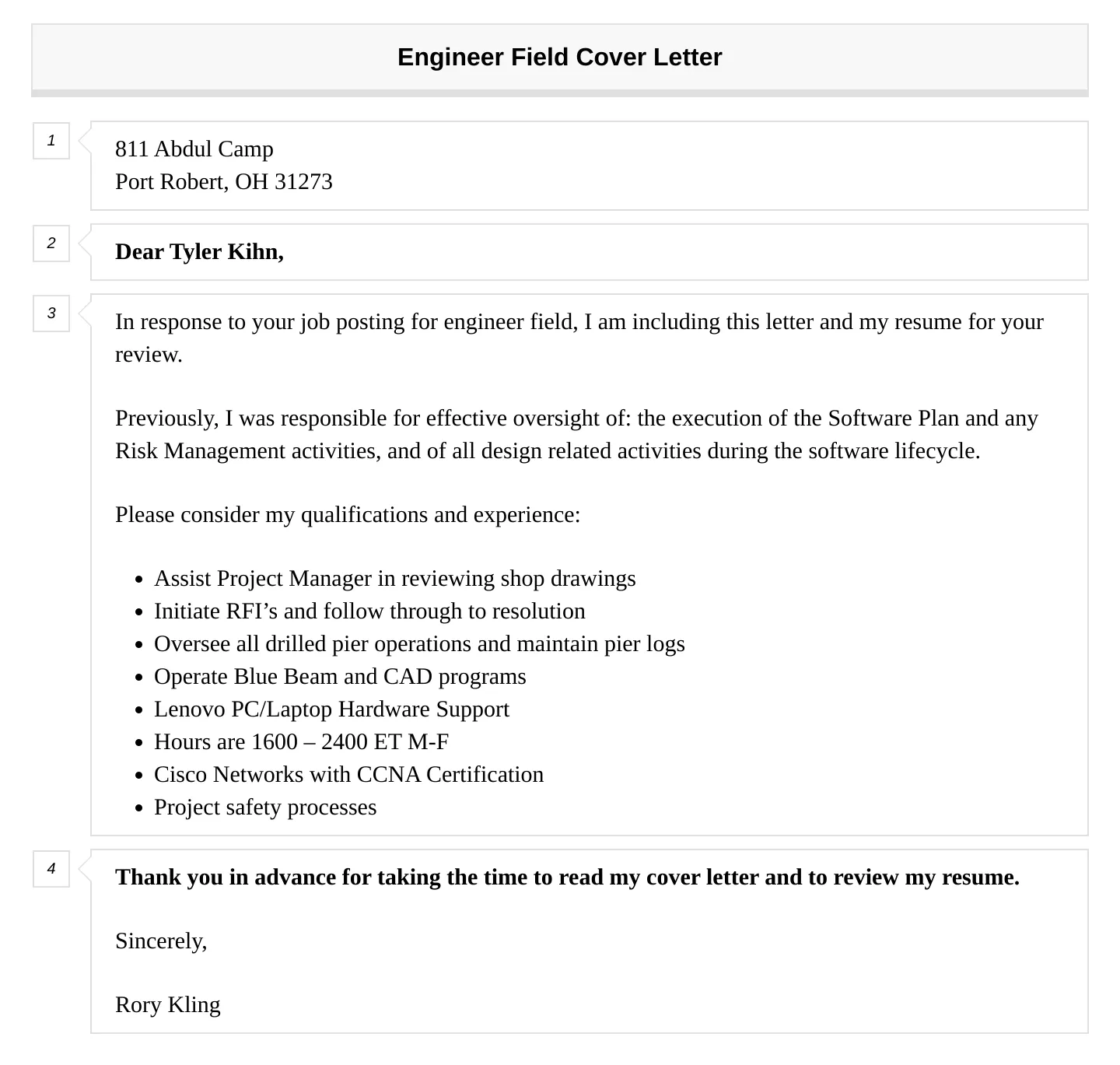
At the top of your cover letter, include your full name, phone number, email address, and optionally, your LinkedIn profile URL. This information makes it easy for the hiring manager to contact you. Ensure your contact information is current and professional. Double-check for any typos or errors that could prevent them from reaching you. Make sure that your email address sounds professional as well, avoid nicknames or informal language.
The Introduction
Start your cover letter with a strong introduction that immediately grabs the reader’s attention. State the position you are applying for and how you learned about the opportunity. Briefly mention your key qualifications and express your enthusiasm for the role and the company. Your goal is to create an immediate positive impression and encourage the hiring manager to continue reading. Make it clear why you are interested in this specific position and company, avoid generic phrases. The introduction sets the tone for the rest of your cover letter, so make it compelling and concise.
Highlighting Your Skills and Experience
This is the most critical part of your cover letter. Focus on the skills and experiences that align with the job requirements. Provide specific examples of your accomplishments and how you have applied your skills in previous roles. Quantify your achievements whenever possible to demonstrate the impact you’ve made. Tailor this section to match the specific needs of the employer, highlighting relevant experiences and accomplishments that show your value. Do not simply list your skills; instead, show how you have utilized these skills to achieve positive outcomes in the past. Provide detailed instances.
Technical Skills
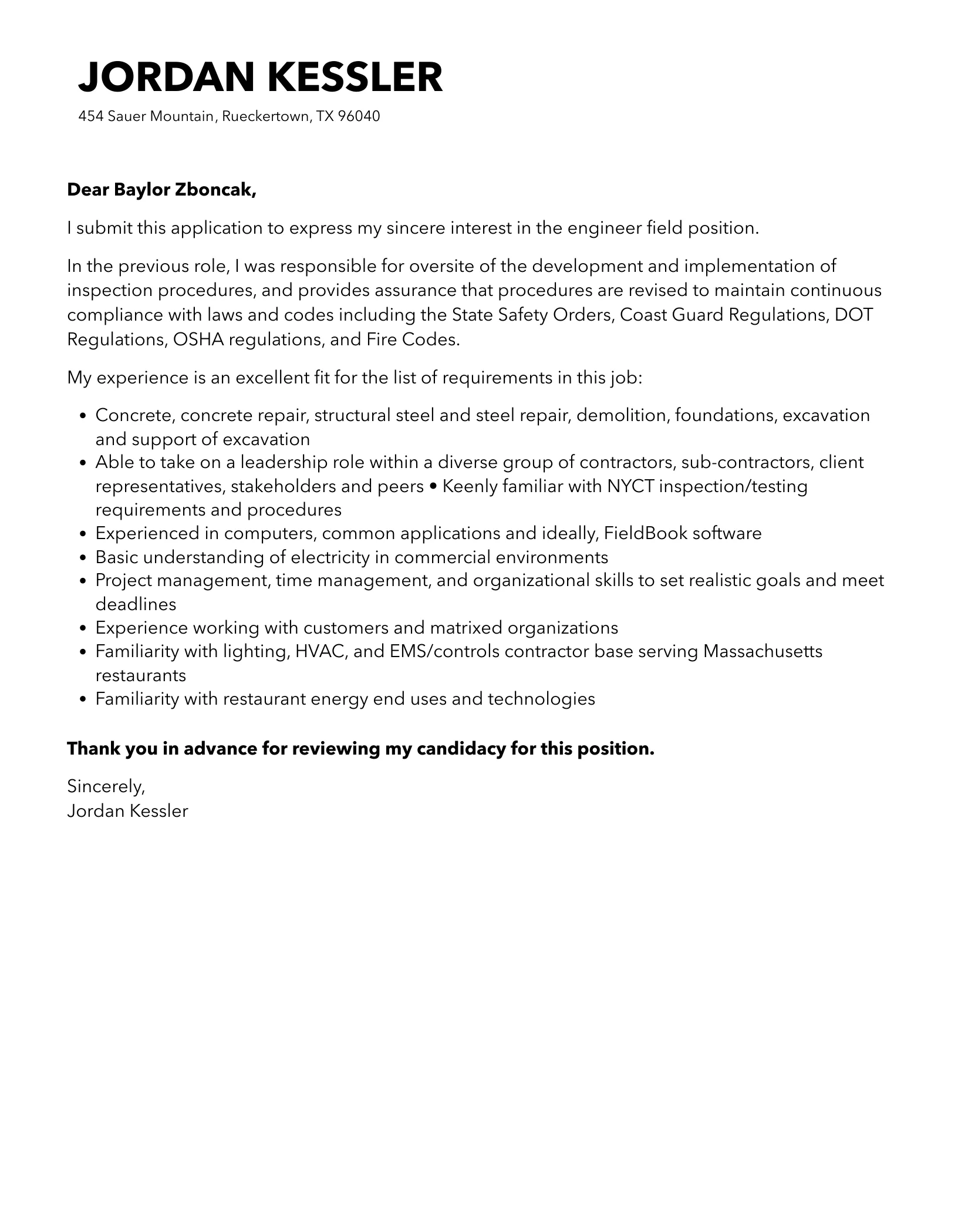
Field Engineers need a solid foundation in technical skills. Detail your proficiency in relevant hardware, software, and tools. Mention any specific technologies or systems you have experience with, such as networking, programming, or diagnostic tools. Include any certifications or training relevant to the position. Show you possess not just theoretical knowledge but hands-on experience in applying these skills. Make sure your technical skill section meets the requirement of the role you are applying for. Using industry-specific terminology adds credibility to your application and demonstrates your expertise.
Problem-Solving Abilities
Field Engineers are often called upon to troubleshoot and resolve complex technical issues. Showcase your problem-solving skills by describing how you have approached and resolved challenges in previous roles. Provide specific examples of how you identified problems, implemented solutions, and ensured successful outcomes. Include any methodologies or approaches you have used to analyze and resolve issues, emphasizing your ability to think critically and work effectively under pressure. Highlight your ability to diagnose problems accurately and provide effective solutions.
Project Management Experience
If you have experience managing projects, be sure to highlight it. Describe your role in project planning, execution, and completion. Mention any methodologies or tools you have used to manage projects efficiently, such as Agile or Scrum. Provide details about projects you have led or been involved in, including the scope, your responsibilities, and the results achieved. Demonstrate your ability to manage resources, meet deadlines, and deliver successful outcomes. This will showcase your ability to handle multiple tasks and responsibilities, which is crucial in a field engineering role.
Quantifiable Achievements
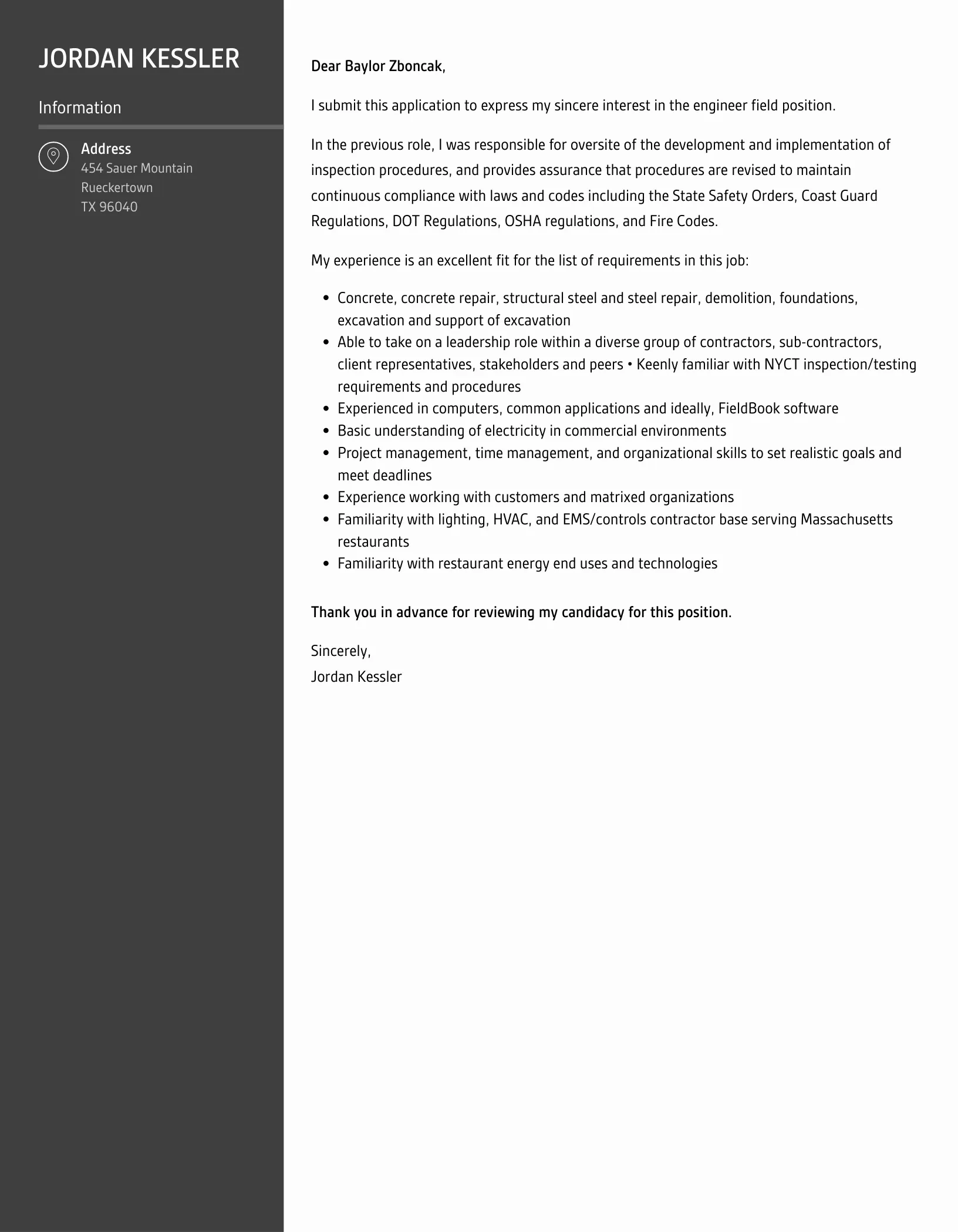
Whenever possible, quantify your achievements to provide concrete evidence of your abilities. Use numbers and data to illustrate the impact of your work. For example, mention the percentage by which you improved efficiency, reduced downtime, or increased customer satisfaction. Providing specific numbers gives the hiring manager a clear understanding of your value and accomplishments. Quantifiable achievements demonstrate your capacity to produce measurable results, which is highly valued in a field engineer position.
Showcasing Your Passion and Enthusiasm
Express your passion for the field engineering profession and your enthusiasm for the specific role and company. Demonstrate your genuine interest in the company’s work, mission, and values. Mention how your career goals align with the company’s objectives. This personal touch can set you apart from other candidates, showing that you are not just looking for a job, but an opportunity to contribute and grow. Expressing genuine enthusiasm reflects a positive attitude and a willingness to learn and succeed.
Tailoring Your Cover Letter
One of the most critical aspects of writing a successful cover letter is tailoring it to each specific job application. Avoid using a generic cover letter; instead, customize it to match the specific requirements and expectations of the role. Tailoring your cover letter demonstrates your attention to detail, your understanding of the job, and your genuine interest in the company. Research the company, and highlight the specific skills and experiences that align with the job description. This customization increases your chances of catching the hiring manager’s attention and securing an interview. Do not ever send generic applications.
Researching the Company
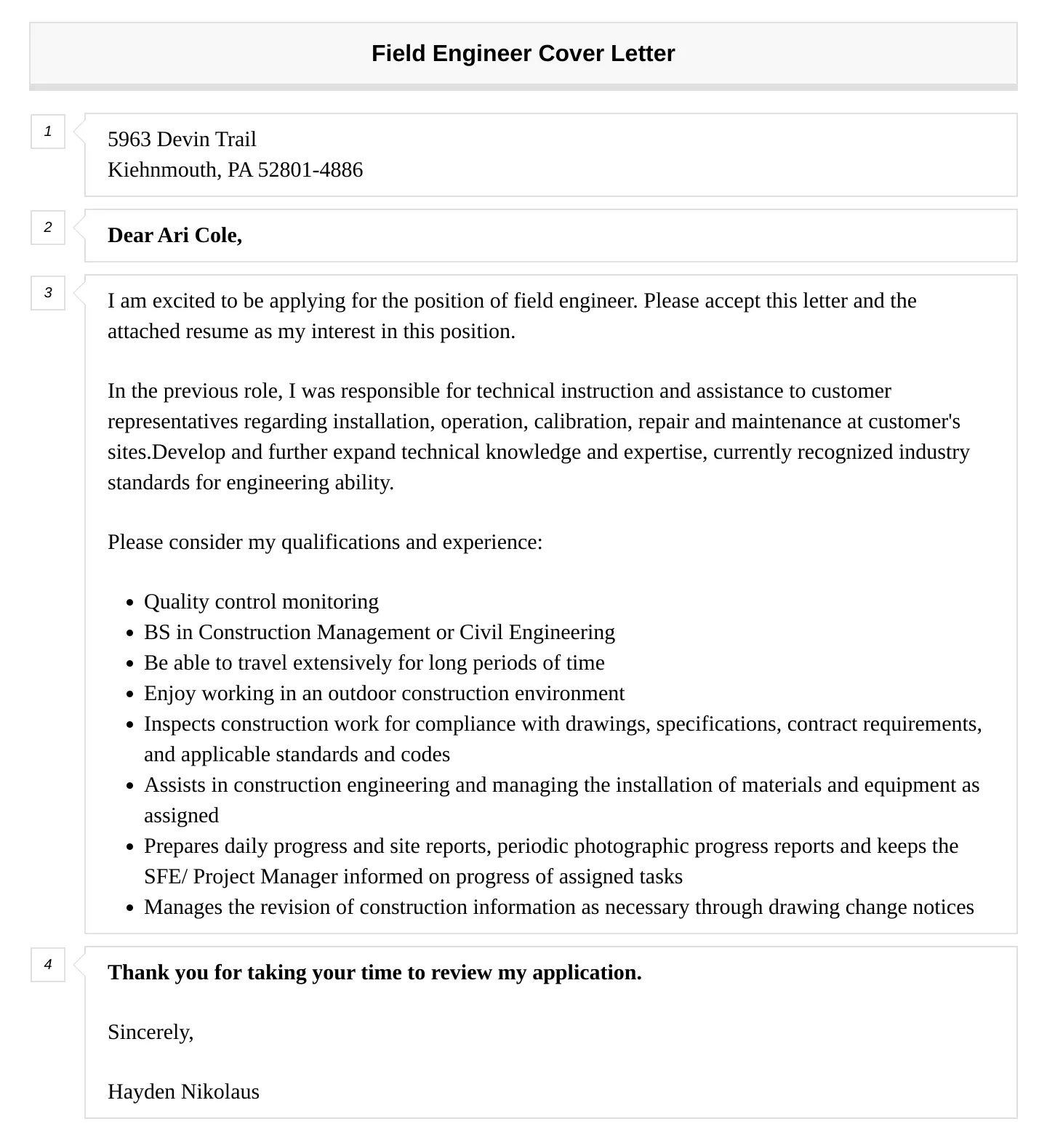
Before writing your cover letter, research the company to understand its mission, values, and culture. Visit their website, read industry news, and check their social media profiles. Identify the company’s key projects, clients, and achievements. Use this information to tailor your cover letter, mentioning specific aspects of the company that interest you. This will demonstrate your genuine interest and show the hiring manager that you have invested time in learning about the company. This will increase your application success rates.
Customizing the Content
Carefully review the job description and identify the key skills and qualifications required. Customize your cover letter by highlighting your relevant skills and experiences, and providing specific examples of how you have met similar requirements in the past. Use keywords from the job description to show that you understand the role and the company’s needs. This will help your application pass through any automated screening systems and make a stronger impression on the hiring manager. Remember, your goal is to show that you are a perfect match for the position.
Proofreading and Editing Your Cover Letter
Before submitting your cover letter, proofread and edit it carefully to ensure it is free of errors. Typos, grammatical errors, and formatting inconsistencies can damage your credibility and make a negative impression. Proofread your cover letter multiple times, and consider asking a friend or colleague to review it as well. Ensure that the language is clear, concise, and professional. A well-written, error-free cover letter demonstrates your attention to detail and professionalism.
Common Mistakes to Avoid
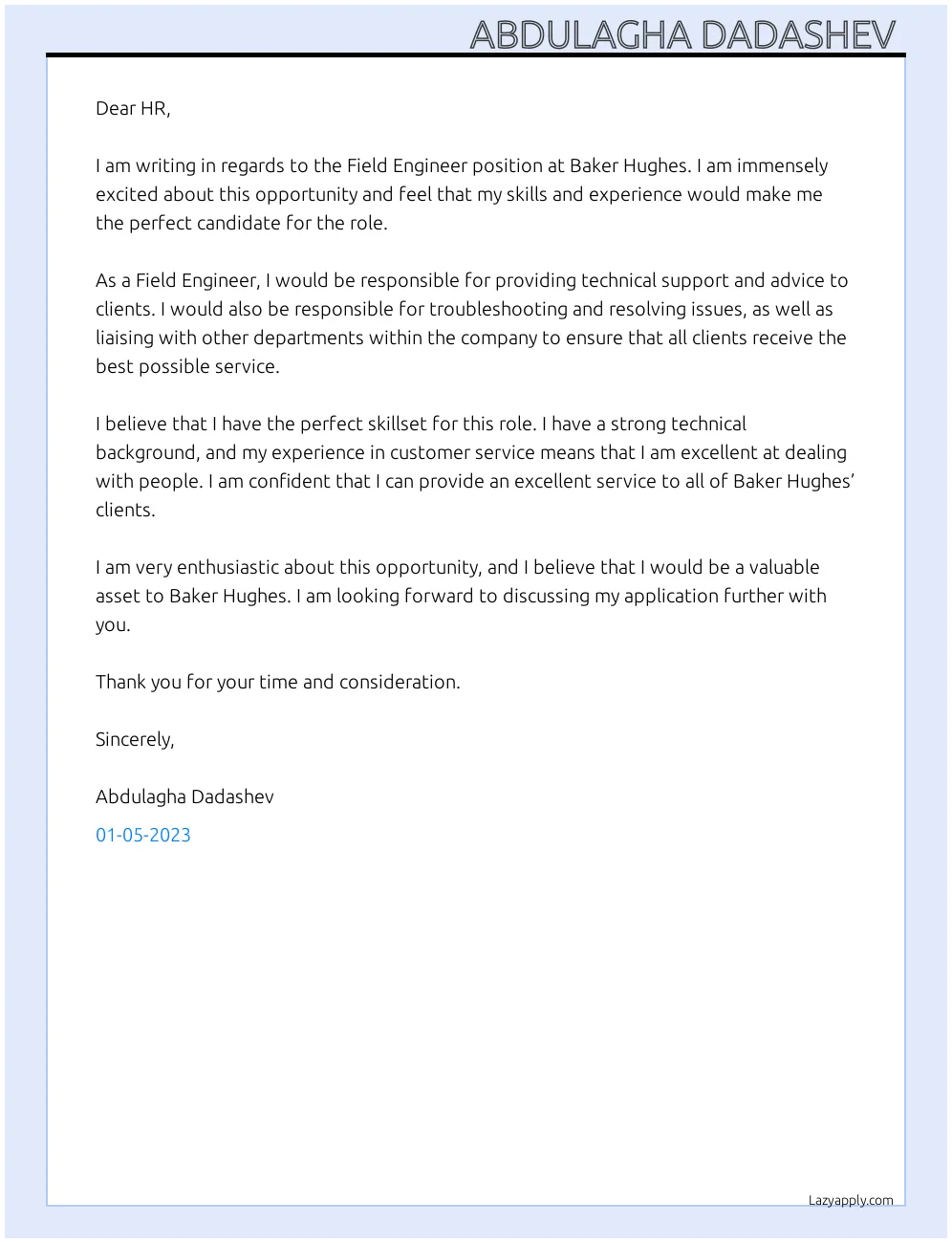
Avoid certain common mistakes to ensure your cover letter makes a positive impression. These mistakes can detract from your qualifications and reduce your chances of getting an interview. Pay close attention to these elements to avoid mistakes that can hurt your application.
Grammar and Spelling Errors
Errors in grammar and spelling are a serious turn-off. Always proofread your cover letter multiple times, and use grammar and spell-check tools. Consider asking someone else to review your letter, as a fresh pair of eyes can often catch mistakes you might miss. Poor grammar and spelling reflect poorly on your attention to detail and professionalism. Do not take shortcuts when it comes to these details. Even a small error can make the reader think you are not careful.
Generic Cover Letters
Avoid using a generic cover letter that is not tailored to the specific job. Generic letters do not show the hiring manager that you are genuinely interested in the position or the company. Customize your cover letter to match the specific requirements and expectations of the job. Show that you understand the role and the company’s needs by highlighting the relevant skills and experiences. Take the time to customize your letter for each application.
Length of the Cover Letter
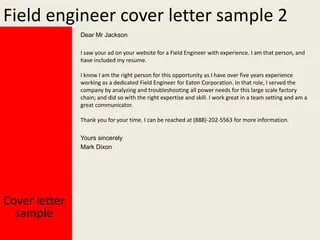
Keep your cover letter concise and to the point, and aim for one page. Avoid providing excessive details that are not relevant to the job. Be selective about the information you include, and focus on the most important qualifications and experiences. Use clear and concise language, and make sure your cover letter is easy to read. Too much text will lose the reader’s attention.
Formatting and Presentation
Ensure your cover letter is well-formatted and visually appealing. Use a professional font, such as Times New Roman or Arial, and maintain consistent formatting throughout the document. Use clear headings, bullet points, and white space to organize your content and make it easy to read. Poor formatting makes your cover letter look unprofessional and can make it difficult to read. A well-formatted cover letter shows you pay attention to detail.
The Importance of Following Up
After submitting your cover letter and resume, it’s important to follow up with the hiring manager. Send a brief email or make a phone call a week or two after submitting your application. Express your continued interest in the position and reiterate your qualifications. This demonstrates your enthusiasm and initiative. Following up shows that you are proactive and engaged in the job-seeking process. This may not be the most important element, but it will help you stand out.
Writing a compelling cover letter is an essential step in landing a Field Engineer position. By following these guidelines, you can craft a cover letter that highlights your skills, experience, and enthusiasm for the role. Remember to tailor your letter to each job application, proofread carefully, and showcase your passion for field engineering. Your efforts in creating a standout cover letter will significantly increase your chances of securing an interview and ultimately, your dream job. Good luck in your job search!
